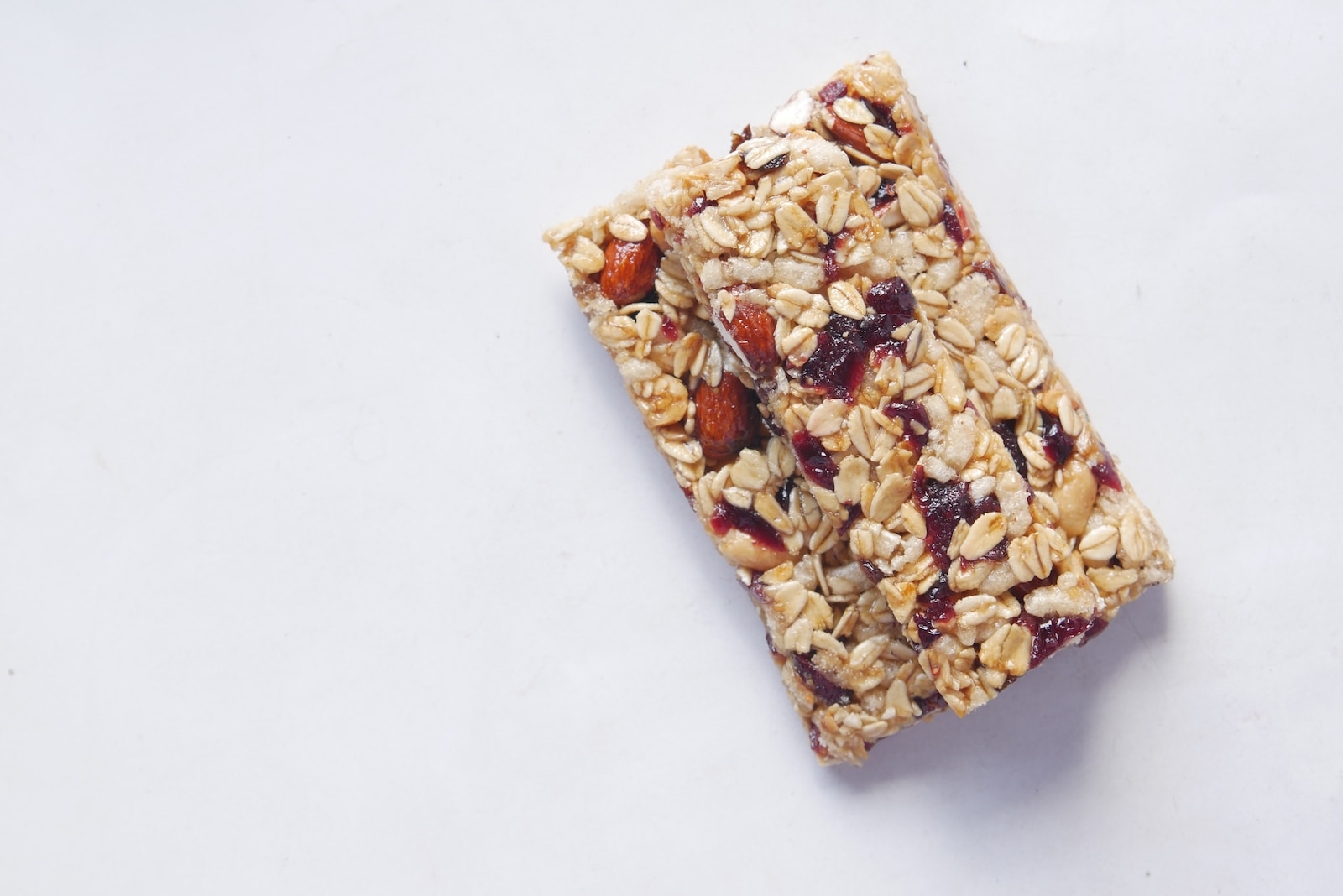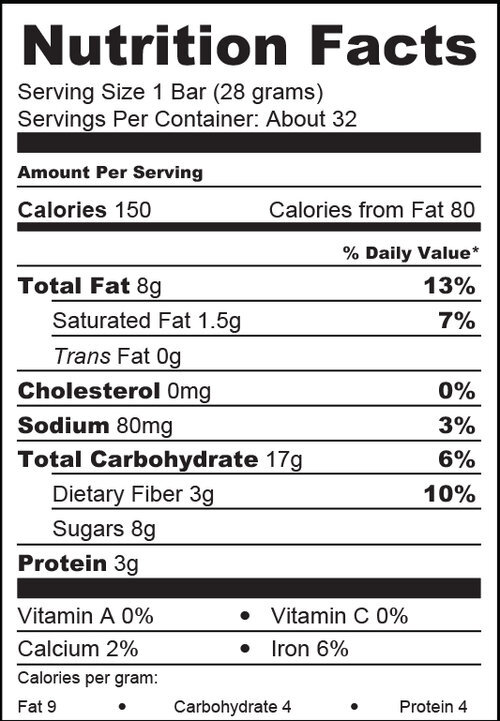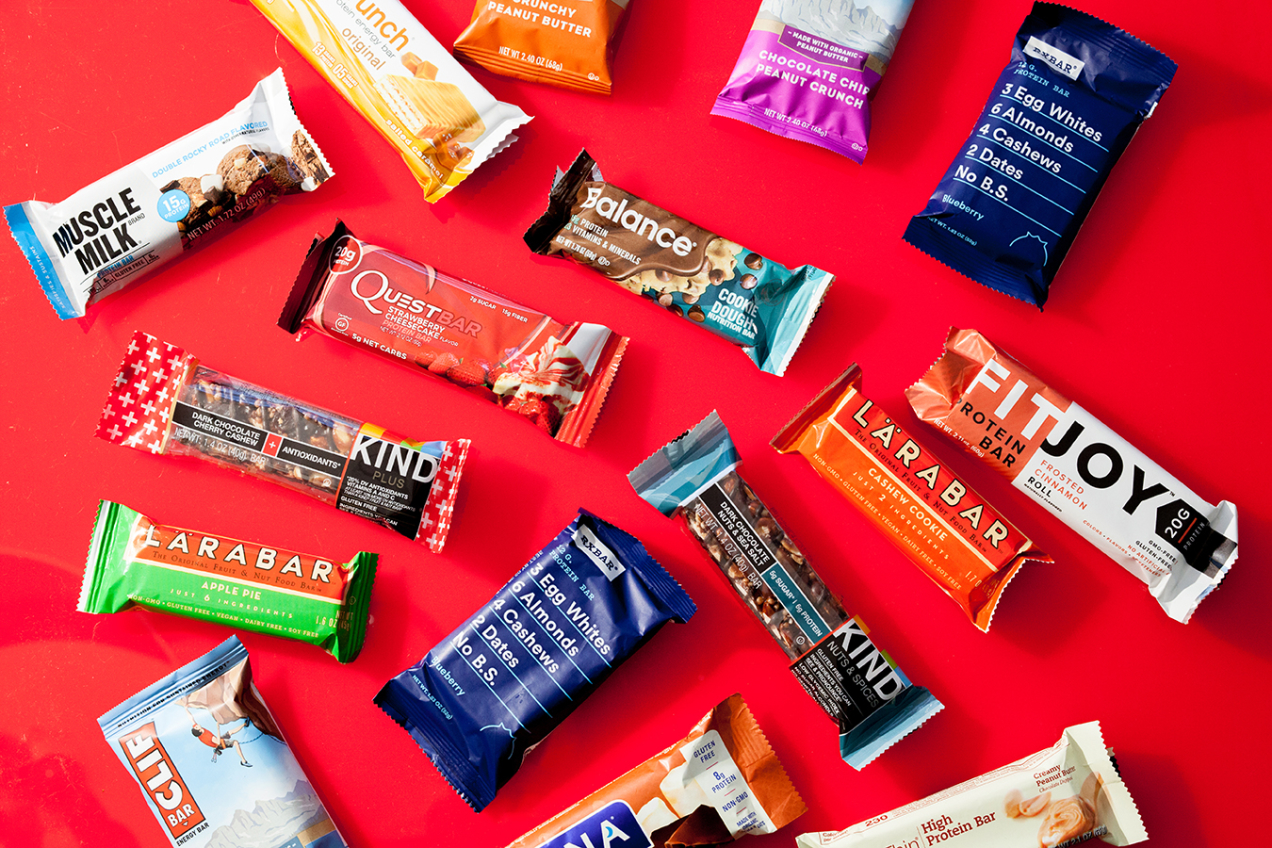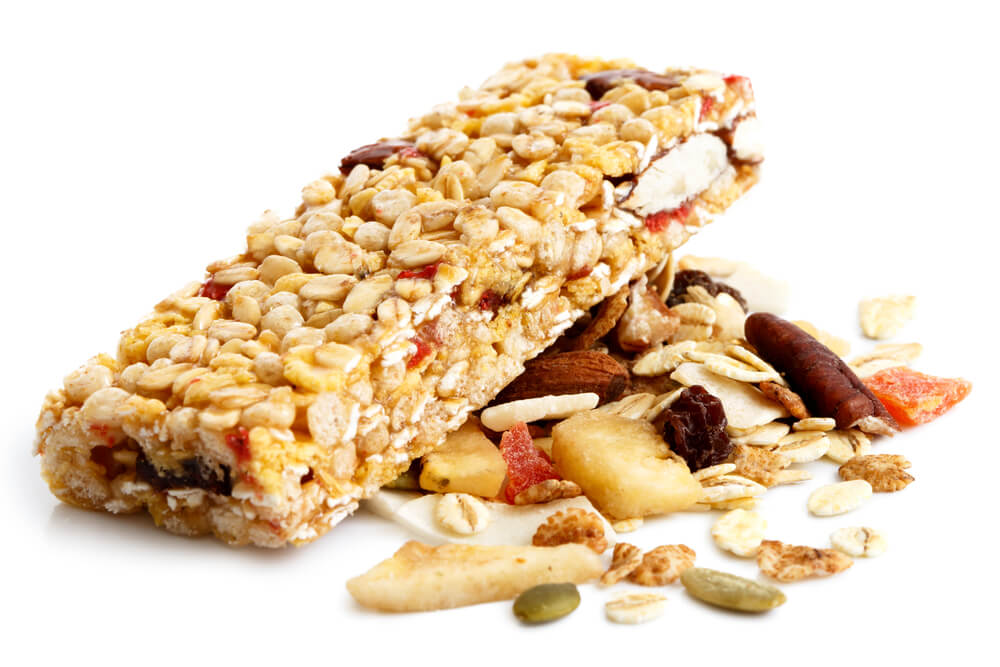Energy bars have gained immense popularity as a convenient and on-the-go snack option. Whether you’re an athlete, a busy professional, or a health-conscious individual, chances are you’ve indulged in an energy bar at some point. These bars are often marketed as a quick source of sustained energy and a healthy alternative to traditional snacks. In our previous blog we discussed Low Carb Diet Review: Unveiling Astonishing Low-Carb Reality. In this blog post, we will delve into the truth behind your favorite snack and explore the potential health implications of consuming energy bars. But can energy bars be unhealthy? Let’s find out in this blog.
What Are Energy Bars?
 Energy bars are compact, portable snacks designed to provide a quick boost of energy.
Energy bars are compact, portable snacks designed to provide a quick boost of energy.
They come in various forms, including granola bars, protein bars, and meal replacement bars.
Energy bars are typically composed of a combination of carbohydrates, proteins, and fats, with additional ingredients such as nuts, seeds, fruits, and sweeteners.
These bars are often fortified with vitamins and minerals to enhance their nutritional value.
The Nutritional Content of Energy Bars
 Understanding the nutritional content of energy bars is crucial to determining their healthiness.
Understanding the nutritional content of energy bars is crucial to determining their healthiness.
Macronutrients, including carbohydrates, protein, and fat, play a significant role in the overall composition of these bars.
Carbohydrates provide the primary source of energy, while protein aids in muscle recovery and repair.
Fats contribute to satiety and help in the absorption of fat-soluble vitamins.
However, it’s important to note that not all energy bars are created equal.
Some may contain excessive amounts of sugar, unhealthy fats, and artificial additives. Additionally, the fiber content varies among different bars.
Fiber is essential for digestive health and can help regulate blood sugar levels.
High fiber content is generally desirable in energy bars, but it’s crucial to consider the overall nutritional balance.
Potential Health Benefits of Energy Bars
 Energy bars can offer several potential health benefits.
Energy bars can offer several potential health benefits.
They provide a convenient source of quick energy, making them ideal for individuals engaged in physical activities or needing a pick-me-up during a busy day.
Athletes often rely on energy bars as a pre- or post-workout snack to fuel their performance and aid in muscle recovery.
Energy bars can also be useful in certain dietary plans.
They can serve as meal replacements for individuals trying to manage their weight or those on-the-go who may not have time for a complete meal.
Additionally, some energy bars are formulated to meet specific dietary requirements, such as vegan, gluten-free, or low-sugar options, providing more options for individuals with dietary restrictions.
Can energy bars be unhealthy? Factors That Can Make Energy Bars Unhealthy
 While energy bars can have their benefits, certain factors can make them unhealthy if not chosen wisely.
While energy bars can have their benefits, certain factors can make them unhealthy if not chosen wisely.
One common concern is the high sugar content found in some energy bars.
Excessive sugar consumption can contribute to weight gain, metabolic issues, and dental problems.
Additionally, artificial sweeteners used in some bars may have their own potential health risks.
Calorie content is another important consideration.
Some energy bars can be calorie-dense, which may lead to overconsumption and unintended weight gain if not taken into account.
Unhealthy fats, such as trans fats and excessive saturated fats, can also be present in certain bars, which can have adverse effects on cardiovascular health.
Furthermore, the level of processing and the quality of ingredients used in energy bars can impact their healthiness.
Bars made with whole food ingredients and minimal processing are generally healthier options.
On the other hand, bars with a long list of artificial additives and preservatives should be consumed with caution.
Understanding Labeling and Marketing Claims
 When selecting energy bars, it’s essential to read and understand the labels.
When selecting energy bars, it’s essential to read and understand the labels.
The packaging and marketing claims can be misleading, making it crucial to be discerning consumers.
Terms like “natural,” “low-fat,” and “high-protein” are often used to entice buyers.
However, these claims may not always reflect the actual nutritional value of the bar.
By carefully reading the ingredient list and nutritional information, you can make more informed choices.
How to Choose Healthier Energy Bars
 To ensure you’re making healthier choices when it comes to energy bars, consider the following tips:
To ensure you’re making healthier choices when it comes to energy bars, consider the following tips:
1. Read the ingredient list and understand the order of ingredients. Ingredients are listed in descending order by weight, so if sugar or unhealthy fats are at the top of the list, it’s a red flag.
2. Check the sugar and calorie content. Opt for bars with lower sugar content and reasonable calorie counts to avoid excessive energy intake.
3. Consider the presence of whole food ingredients and avoid artificial additives. Look for bars with recognizable ingredients and minimal processing.
4. Seek bars with balanced macronutrients and adequate fiber content. Aim for a good balance of carbohydrates, protein, and fats, and choose bars with a decent fiber content for better digestion.
Potential Side Effects and Risks
 While energy bars can be a convenient snack option, it’s essential to be aware of potential side effects and risks.
While energy bars can be a convenient snack option, it’s essential to be aware of potential side effects and risks.
Some individuals may experience digestive issues, such as bloating or discomfort, due to the high fiber content or specific ingredients in energy bars.
Allergic reactions can also occur, especially if the bars contain common allergens like nuts or soy.
Overconsumption of energy bars can lead to unintended weight gain. It’s important to remember that energy bars should complement a balanced diet rather than replace whole foods entirely.
Moreover, certain additives or high sugar intake over the long term can contribute to health risks such as obesity, diabetes, and cardiovascular problems.
The Role of Energy Bars in a Balanced Diet
Energy bars should be viewed as a supplement to a balanced diet, rather than a substitute for wholesome meals.
They can provide a quick energy boost and be a part of a healthy snacking routine.
However, it’s crucial to incorporate a variety of whole foods, including fruits, vegetables, lean proteins, and whole grains, to ensure optimal nutrition and overall well-being.
Conclusion
Energy bars can be a convenient and satisfying snack option when chosen wisely.
Understanding their nutritional content, considering factors that can make them unhealthy, and being aware of potential risks are essential for making informed choices.
By reading labels, avoiding excessive sugar and unhealthy fats, and prioritizing whole food ingredients, you can enjoy energy bars as part of a balanced diet.
Remember to consult professionals if you have specific dietary concerns or individual nutritional needs. With mindful consumption, energy bars can be a beneficial addition to a healthy lifestyle.
Are you looking to make healthier choices in your snacking routine and overall lifestyle?
As we've explored the world of energy bars and their potential benefits and drawbacks, it's clear that not all energy bars are created equal.
While they can provide a convenient source of quick energy, there are factors to consider that can make some energy bars unhealthy choices.
Excessive sugar, artificial additives, unhealthy fats, and misleading marketing claims can all affect your well-being. But fear not, because we have the solution for you!
Download our still free report today, and discover The Exact Method to Unlock Your Metabolism for All-Natural Weight Loss, Enabling You to Lose 1-3 Pounds Per Week Automatically—No Diet or Exercise Needed!
Make informed choices not only in your snacks but also in your weight loss journey.
Click the link below and take the first step toward a healthier you.
[Source]Free Report
Take the first step towards effortless weight loss. Click here to book your free Weight Loss Clarity Call now.
Attain a new level of enlightenment with these essential related blog posts
-
The Most Dangerous Energy Drinks: 5 Ingredients to Avoid
Energy drinks have gained immense popularity in recent years, with people seeking a quick boost…
-
Detox Diet Exposed: Unmasking Juice Cleanse Myths
Are you considering a detox diet to lose weight or feel better? You’re not alone.…
-
The Problem with Low-Fat Diets: 5 Reasons Why They Fail
Low-fat diets have been popular for decades, with many people believing that cutting back on…














